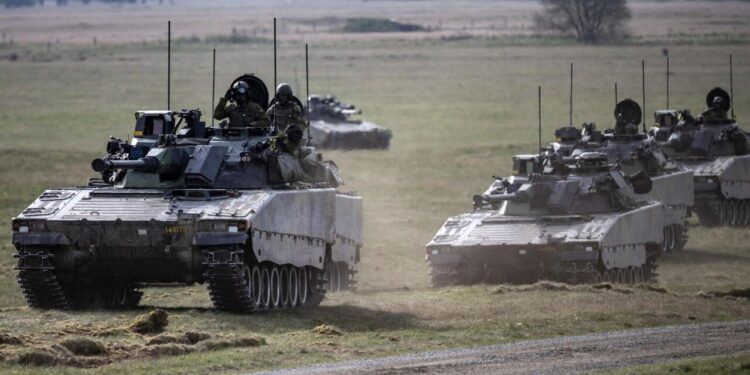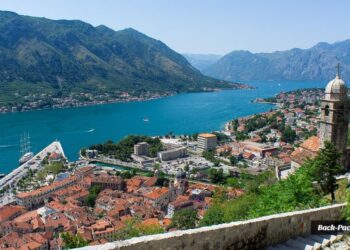EU Provides €6 Million Military Support to Montenegro amidst Regional Instability
In a significant move to bolster regional security and stability, the European Union has announced a €6 million military support package for Montenegro, following a decision by the European External Action Service (EEAS). this funding, aimed at enhancing the capabilities of the Montenegrin armed forces, comes as the country grapples with increasing geopolitical tensions in the Balkans. The initiative underscores the EU’s commitment to strengthening its partners in the region and reflects ongoing efforts to promote peace and cooperation in the face of evolving security challenges. As Montenegro continues to integrate into European structures, this financial support marks a pivotal step in fostering a more resilient defense framework.
EU Enhances Regional Security with €6 Million Military Aid to Montenegro
The European Union has reaffirmed its commitment to strengthening regional security with a significant €6 million military aid package directed towards Montenegro. This assistance is part of the EU’s ongoing efforts to enhance the capabilities of the Montenegrin Armed Forces, ensuring they are well-equipped to tackle contemporary security challenges. The military aid will focus on areas such as training programs, modern equipment procurement, and strategic infrastructure development, ultimately aiming to bolster Montenegro’s defense posture and readiness.
This funding comes at a critical time as Montenegro navigates complex geopolitical dynamics in the Balkans. The aid will facilitate enhanced cooperation among Western Balkan countries, contributing to a more stable and secure region.Key initiatives under this military support include:
- Enhanced defense capabilities through advanced training sessions for military personnel.
- Strengthening NATO interoperability to ensure seamless collaboration during joint operations.
- Increased disaster response capability to manage both natural disasters and humanitarian crises effectively.
Assessment of Military Support: Strategic Implications for Montenegro and the Western Balkans
The recent allocation of €6 million in military support from the European Union signifies a pivotal shift in Montenegro’s defensive posture and by extension, the stability of the entire Western Balkans region. This funding primarily aims to enhance the capabilities of the Montenegrin Armed Forces, addressing critical areas such as modernization of equipment, personnel training, and overall military readiness. as Montenegro solidifies its position as a NATO ally, this support could pave the way for greater cooperation among regional partners, fostering a more cohesive strategy to counter emerging security threats.
In the broader context,the strategic implications of this assistance extend beyond Montenegro’s borders. strengthening montenegro’s military capabilities enables the country to play a more substantive role in regional defense initiatives, potentially leading to initiatives that promote collective security. Furthermore, this move sends a clear signal to other nations in the Balkans about the EU’s commitment to stability and security in the region. The result could be a more united front against external pressures, including geopolitical challenges that threaten the integrity of the western Balkans.
Recommendations for Effective Utilization of EU Military Assistance in Strengthening Montenegro’s Defense Capabilities
To maximize the impact of the recent €6 million military assistance from the European Union, Montenegro should adopt a extensive strategy that focuses on key areas to boost its defense capabilities. Prioritizing the allocation of resources towards critical military needs can ensure that the military receives essential training, equipment, and infrastructure development.This includes investing in areas such as:
- Enhancing training programs for both personnel and specialized units.
- Upgrading existing equipment to meet NATO standards and operational readiness.
- Strengthening cyber defense capabilities to better protect national security interests.
In addition, fostering collaboration with EU military experts and neighboring countries will be vital for lasting development. Engaging in joint exercises, knowledge-sharing workshops, and strategic planning sessions can enhance operational efficiency and promote interoperability among allied forces. Moreover, establishing a obvious monitoring mechanism for overseeing the utilization of funds will ensure accountability and effectiveness in executing the assistance. This collaborative approach should encapsulate:
- Regular assessments of military needs and capacity gaps.
- Feedback loops involving armed forces and local stakeholders.
- Engagement with international partners to leverage additional resources and expertise.
Closing Remarks
the European Union’s decision to allocate €6 million in military support to Montenegro underscores its commitment to enhancing regional stability and supporting the country’s defense capabilities. This financial aid,facilitated by the European External Action Service (EEAS),comes at a critical time,reflecting both the EU’s strategic interests and montenegro’s aspirations for deeper integration into euro-atlantic structures. As Montenegro continues to navigate its geopolitical landscape amid evolving security challenges, this support will play a vital role in strengthening its armed forces and fostering cooperation with EU partners. The move not only bolsters Montenegro’s self-defense measures but also reinforces the EU’s broader security framework in the Western Balkans, signaling a collective effort to promote peace, security, and resilience in the region. As developments unfold, the collaboration between the EU and Montenegro will remain a focal point in maintaining stability in an area marked by ancient tensions and future potential.
















Hegseth Attends Ukraine Defense Group Only Virtually – The New York Times